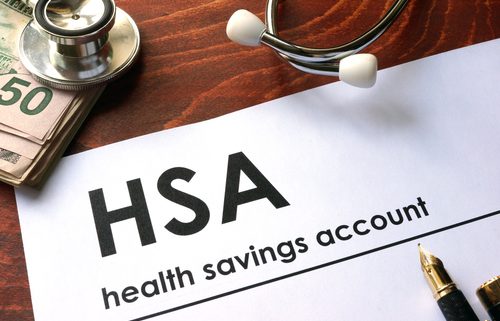Five Benefits to a Self-Directed HSA
It’s estimated that around 22 million working Americans have a Health Savings Account, or HSA. These tax-free health spending accounts are typically funded by contributions made through your employer; in other words, you pay for your Self-Directed HSA through paycheck deductions. Approximately 20% of private employers offer an HSA plan to employees. But did you know you can self-direct your Health Savings Account just like a retirement account? Let us take a look at five benefits to a Self-Directed HSA.
Five Benefits to a Self-Directed HSA
Once you understand how an HSA works, you will see that they give you a lot of flexibility for creating an investment avenue. But there is more to understand about the benefits of a Self-Directed HSA that can ultimately help you in the long run as you create a retirement plan for yourself:
Benefit #1: Diversity of Investments
Your employer may have a preferred investment path that he or she has chosen for your HSA. The money you earn will still be invested once it reaches a certain, but you won’t have the flexibility to choose where the money is invested.
With a Self-Directed HSA, you can choose the best course of action for your unique financial needs. Depending upon your administrator, you can choose to invest in ETFs, mutual funds, or even alternative assets like real estate.
Benefit #2: Invest When You’re Ready
Most employer-directed HSAs will automatically begin to invest your earnings at a certain threshold. As mentioned, this is typically when your contributions have reached between $1-2,000.
When you choose a Self-Directed HSA, you decide when to invest and how much you would like to “risk.” Choose your investments or choose to simply allow your money to sit for a while as you decide what best suits your financial needs.
Benefit #3: Invest Consistently
Whether you own an employer- or Self-Directed HSA, that account belongs to you. Should you leave your job or retire, your account follows you, not the company you work for.
Imagine for a moment that you terminate your employment with one company and transfer your HSA to another. The investment options your new employer has chosen may not align with your personal financial goals.
If you have a Self-Directed HSA, your investments will remain consistent. You can seamlessly change employment without the worry of making adjustments to your portfolio.
Benefit #4: Choose Your Administrator
When you own an employer-directed HSA, you may be allowed to choose between one or two administrators (trustees). This does not leave you much flexibility in choosing how your investments are handled.
In choosing a Self-Directed HSA, you are granting yourself the ability to decide which institution will best handle your investments. You will likely also connect with a personal associate who will work with you one-on-one to ensure your money is working for you.
Benefit #5: Invest from the Get-Go
Most employer-directed Health Savings Accounts will only begin investing for you when you reach a certain threshold. When you open a Self-Directed HSA, you have the option to choose a trustee that will allow you to invest with no minimum.
If it’s important for you to begin investing your money right away, a Self-Directed Health Savings Account may be right for you. Speak with your financial service representative to ascertain whether a minimum HSA balance must be met before you begin to invest.
Interested in learning more about Self-Directed IRAs? Contact American IRA, LLC at 866-7500-IRA (472) for a free consultation. Download our free guides or visit us online at www.AmericanIRA.com.





